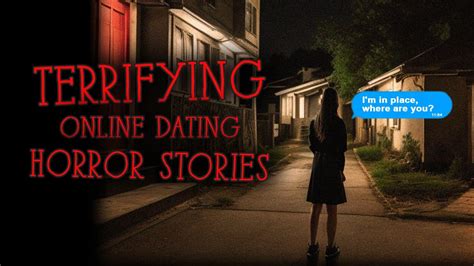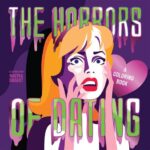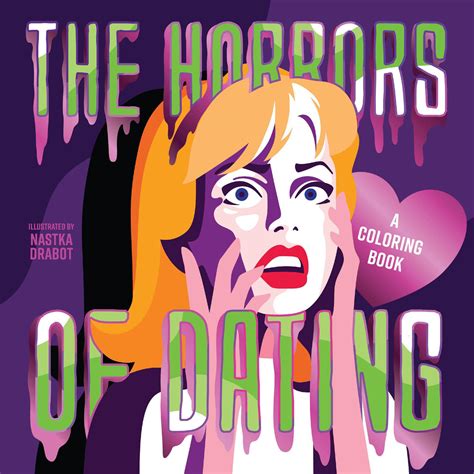
Dating app experiences have sparked a wave of online horror stories, with users recounting tales of bizarre behavior, financial exploitation, and outright deception, prompting some to suggest that victims of exceptionally bad dates deserve compensation and apologies. Social media platforms, particularly TikTok and Reddit, have become repositories for these dating disasters, highlighting the risks and pitfalls of modern romance.
Dating in the digital age promises connection and companionship, but for many, it delivers a catalogue of cringe-worthy and sometimes damaging encounters. A recent surge of shared experiences online has brought to light the darker side of dating apps, with users detailing everything from awkward silences and mismatched expectations to alarming and potentially dangerous behaviors. The sheer volume of these “dating horror stories” has ignited a debate about accountability and whether victims of particularly egregious dates should be entitled to some form of redress.
The stories, often shared anonymously, range from the humorous to the deeply disturbing. Many revolve around financial impropriety, such as dates where one party expects the other to foot the entire bill, even after indicating they would split it. Others involve blatant dishonesty, including instances of catfishing (where individuals create fake online profiles) or hiding significant personal information, like being married or having children.
One Reddit user recounted a date where their companion spent the entire evening berating the restaurant staff, while another shared a story of a date who brought their mother along unannounced. A particularly jarring tale involved a date who attempted to sell the user a timeshare during what was supposed to be a casual evening.
These anecdotes, while sometimes amusing in retrospect, highlight the emotional and psychological toll that bad dates can take. Beyond the immediate discomfort and disappointment, these experiences can erode self-esteem, create anxiety about future dates, and even lead to a general distrust of romantic prospects.
The discussion about compensation and apologies stems from a growing recognition that some of these behaviors are not merely awkward or unfortunate, but potentially harmful. While legal action is unlikely in most cases, the idea of holding individuals accountable for their actions on dates resonates with many who feel that basic standards of decency and respect are often disregarded in the world of online dating.
Some commentators have suggested that dating apps should implement stricter verification processes to prevent catfishing and other forms of deception. Others advocate for a system where users can report and rate their dates, providing a form of social accountability. The goal is to create a safer and more transparent dating environment where individuals are held to a higher standard of behavior.
“It’s about recognizing that our time and emotional energy have value,” said one TikTok user who shared her own dating horror story. “When someone deliberately wastes our time or treats us disrespectfully, there should be some acknowledgement of the harm caused.”
The debate is ongoing, but the proliferation of dating horror stories serves as a cautionary tale about the risks and challenges of finding love in the digital age. It also underscores the importance of setting boundaries, trusting one’s instincts, and prioritizing personal safety when navigating the world of online dating.
Detailed Examples of Dating Horror Stories
The digital landscape is replete with anecdotes highlighting the minefield that dating apps can become. These stories, often shared with a mix of humor and exasperation, offer a glimpse into the diverse range of negative experiences users encounter.
-
The Financial Exploiter: A recurring theme in dating horror stories involves financial exploitation. One user recounted a date where their companion insisted on ordering the most expensive items on the menu, only to claim they had forgotten their wallet when the bill arrived. The user was then forced to cover the entire cost, leaving them feeling used and resentful. Another story detailed a date who openly solicited money for personal expenses, claiming they were experiencing financial hardship. While offering support is admirable, these situations often exploit the other person’s empathy and create an uncomfortable power dynamic.
-
The Catfish: Catfishing, the act of creating a fake online profile using someone else’s photos and information, remains a prevalent issue. Many users have shared stories of meeting someone in person only to discover that they look nothing like their online profile. This deception can be deeply hurtful and damaging, as it violates trust and creates a false sense of connection. In some cases, catfishing can be a precursor to more serious forms of online fraud or abuse.
-
The “Bait-and-Switch”: This involves misrepresenting oneself in a more subtle way. One user described a date who claimed to be a successful entrepreneur but, upon further investigation, turned out to be unemployed and living with their parents. While not as overtly deceptive as catfishing, this type of misrepresentation can still lead to disappointment and a feeling of being misled.
-
The Uninvited Guest: A particularly awkward tale involved a date who brought their mother along without prior notice. The user was understandably mortified and felt that their personal boundaries had been completely disregarded. This type of behavior suggests a lack of respect and consideration for the other person’s feelings.
-
The Sales Pitch: One user recounted a date who spent the entire evening trying to sell them a timeshare. The user felt that the date was not genuinely interested in getting to know them but was simply using the opportunity to pitch their product. This type of behavior is not only inappropriate but also suggests a lack of genuine interest in forming a connection.
-
The Ghoster: Ghosting, the act of abruptly ending communication without explanation, is a common complaint among online daters. While ghosting may seem like a convenient way to avoid confrontation, it can be incredibly hurtful and confusing for the person being ghosted. It leaves them wondering what they did wrong and can damage their self-esteem.
-
The Neglectful Date: Many users have shared stories of dates who spent the entire evening glued to their phones, paying little or no attention to their companion. This behavior suggests a lack of interest and disrespect for the other person’s time. It also makes it difficult to establish any meaningful connection.
-
The Argumentative Date: One user described a date who constantly argued with the restaurant staff, creating an uncomfortable and unpleasant atmosphere. This type of behavior is not only embarrassing but also suggests a lack of social skills and emotional maturity.
-
The Over-Sharer: While vulnerability is important in building relationships, some dates overshare to an inappropriate degree. One user recounted a date who divulged extremely personal and traumatic information within the first hour of meeting. While the user sympathized with their date’s struggles, they felt overwhelmed by the level of intimacy and felt it was inappropriate for a first date.
-
The “Nice Guy” (or Gal): This refers to individuals who present themselves as overly agreeable and accommodating, but who harbor resentment when their advances are not reciprocated. These individuals often express frustration at being “friend-zoned” and may resort to passive-aggressive or even aggressive behavior.
The Psychological Impact of Bad Dates
The cumulative effect of these negative dating experiences can have a significant impact on mental and emotional well-being. Repeatedly encountering disrespectful, dishonest, or otherwise unpleasant individuals can lead to:
-
Decreased Self-Esteem: Being rejected or mistreated on dates can erode one’s sense of self-worth and make them question their desirability.
-
Increased Anxiety: The fear of encountering another bad date can create anxiety about future dating experiences. This anxiety can manifest as nervousness, apprehension, and even panic attacks.
-
Distrust of Others: Repeatedly being deceived or disappointed can lead to a general distrust of potential romantic partners. This distrust can make it difficult to form meaningful connections.
-
Emotional Exhaustion: The process of online dating can be emotionally draining, especially when it involves sifting through countless profiles, engaging in superficial conversations, and dealing with rejection.
-
Cynicism: Over time, negative dating experiences can lead to a cynical outlook on love and relationships. Individuals may become disillusioned and believe that finding a genuine connection is impossible.
-
Social Isolation: The fear of encountering bad dates can lead some individuals to withdraw from the dating scene altogether, resulting in social isolation and loneliness.
The Call for Accountability and Change
The growing awareness of the negative impact of bad dates has fueled a call for greater accountability and change within the online dating industry. Some proposed solutions include:
-
Stricter Verification Processes: Implementing more rigorous verification processes to prevent catfishing and other forms of deception. This could involve requiring users to submit photo identification or undergo background checks.
-
User Reporting and Rating Systems: Allowing users to report and rate their dates, providing a form of social accountability. This would enable individuals to warn others about potential red flags and help to create a safer dating environment.
-
Dating App Etiquette Guidelines: Establishing clear guidelines for acceptable behavior on dates. These guidelines could address issues such as financial responsibility, respect for personal boundaries, and honesty.
-
Mental Health Resources: Providing access to mental health resources for individuals who have experienced negative dating experiences. This could include offering counseling services or support groups.
-
Education and Awareness Campaigns: Conducting education and awareness campaigns to promote healthy dating practices and discourage harmful behaviors.
-
Legal Recourse: While pursuing legal action for a bad date is typically not feasible, some argue that in cases of extreme emotional distress or financial harm, victims should have the option to seek legal recourse. However, this would require establishing clear legal standards for what constitutes a “bad date” and proving that the harm suffered was directly caused by the other party’s actions.
The debate over compensation and apologies for bad dates is complex and multifaceted. While it may not be practical or feasible to implement formal systems of redress, the discussion raises important questions about accountability, respect, and the emotional toll of modern dating. By acknowledging the potential for harm and working to create a safer and more transparent dating environment, the online dating industry can help to mitigate the negative consequences of bad dates and promote more positive and fulfilling experiences.
The Role of Social Media in Amplifying Dating Horror Stories
Social media platforms like TikTok, Reddit, and Twitter have played a crucial role in amplifying dating horror stories and sparking conversations about the darker side of online romance. These platforms provide a space for individuals to share their experiences anonymously, connect with others who have had similar encounters, and find validation and support.
The viral nature of social media allows dating horror stories to reach a wide audience, raising awareness about the risks and challenges of online dating. The use of humor and memes often helps to make these stories more relatable and engaging, encouraging others to share their own experiences.
However, the anonymity of social media can also be a double-edged sword. While it allows individuals to speak freely without fear of judgment or reprisal, it can also create an environment where false or exaggerated stories can spread unchecked. It is important to approach dating horror stories shared on social media with a critical eye and to verify the information before accepting it as fact.
The Future of Dating: Navigating the Risks and Rewards
As online dating continues to evolve, it is essential to develop strategies for navigating the risks and maximizing the rewards. This includes:
-
Setting Clear Boundaries: Establishing clear boundaries and communicating them effectively to potential partners. This includes boundaries related to financial responsibility, physical intimacy, and emotional expectations.
-
Trusting Your Instincts: Paying attention to your gut feelings and trusting your instincts when interacting with potential partners. If something feels off or uncomfortable, it is important to listen to your intuition and proceed with caution.
-
Prioritizing Personal Safety: Taking precautions to protect your personal safety when meeting someone in person for the first time. This includes meeting in a public place, letting a friend or family member know your whereabouts, and avoiding excessive alcohol consumption.
-
Practicing Self-Care: Engaging in self-care activities to maintain your mental and emotional well-being throughout the dating process. This includes activities such as exercise, meditation, spending time with loved ones, and pursuing hobbies.
-
Seeking Support: Seeking support from friends, family, or a therapist if you are struggling with negative dating experiences. Talking about your experiences can help you to process your emotions and develop healthy coping mechanisms.
-
Being Realistic: Maintaining realistic expectations about online dating and recognizing that not every match will be a perfect fit. It is important to be patient and persistent, but also to be willing to walk away from situations that are not serving your best interests.
Online dating offers the potential to connect with a wider range of people and find meaningful relationships. However, it is important to approach the process with caution, awareness, and a commitment to prioritizing your own well-being. By setting boundaries, trusting your instincts, and seeking support when needed, you can navigate the risks and increase your chances of finding love and happiness.
Addressing the “Compensation” Aspect: A Deeper Dive
The suggestion that victims of bad dates deserve compensation raises complex ethical and practical considerations. While the idea might seem appealing in principle, translating it into a workable system presents significant challenges.
-
Defining “Bad Date”: The first hurdle is defining what constitutes a “bad date” that warrants compensation. Subjective experiences vary widely, and what one person considers an unpleasant encounter, another might dismiss as a minor inconvenience. Establishing objective criteria would be exceedingly difficult. Would it include rudeness, dishonesty, mismatched expectations, or only more egregious behaviors like harassment, fraud, or abuse?
-
Quantifying Damages: Assuming a definition of “bad date” is established, quantifying the damages suffered by the victim would be another challenge. How do you assign a monetary value to wasted time, emotional distress, or lowered self-esteem? Unlike physical injuries, these types of damages are difficult to prove and measure.
-
Enforcement Mechanisms: Even if damages could be quantified, enforcing compensation would be problematic. Would dating apps be responsible for mediating disputes and awarding compensation? Would victims have to pursue legal action in small claims court? The logistical and financial burdens of such a system could be prohibitive.
-
Potential for Abuse: A compensation system could be vulnerable to abuse. Individuals might file frivolous claims in an attempt to extort money from their dates. Proving or disproving such claims would be difficult, potentially leading to unfair outcomes.
-
Impact on Dating App Usage: Implementing a compensation system could discourage people from using dating apps. The fear of being held liable for a “bad date” might outweigh the potential benefits of online dating.
Despite these challenges, the discussion about compensation highlights a growing recognition that some behaviors on dates are unacceptable and that victims deserve some form of redress. While financial compensation may not be the most practical solution, other alternatives could be explored, such as:
-
Public Shaming: Allowing users to publicly rate and review their dates could serve as a form of social accountability. Negative reviews could deter individuals from engaging in harmful behaviors.
-
Dating App Bans: Dating apps could ban users who repeatedly engage in unacceptable behavior. This would send a clear message that such behavior will not be tolerated.
-
Educational Resources: Providing users with educational resources about healthy dating practices and red flags to watch out for. This could help to prevent bad dates from happening in the first place.
-
Mediation Services: Offering mediation services to help resolve disputes between users. This could provide a more amicable and less adversarial alternative to legal action.
Ultimately, addressing the issue of bad dates requires a multi-faceted approach that combines prevention, accountability, and support. While compensation may not be the answer, the conversation has sparked important discussions about the need for greater respect, honesty, and ethical behavior in the world of online dating.
FAQ: Dating Horror Stories and the Quest for Accountability
-
What constitutes a “dating horror story” and why are they becoming so prevalent?
- A dating horror story generally refers to a negative or traumatic experience encountered while dating, often involving disrespectful, dishonest, or dangerous behavior. These stories range from awkward or uncomfortable encounters to instances of financial exploitation, catfishing, or even harassment. The prevalence of these stories is likely due to the rise of online dating, which increases the pool of potential partners but also exposes individuals to a greater risk of encountering negative experiences. The anonymity and lack of social accountability inherent in online interactions can also contribute to the problem.
-
Is it realistic to expect compensation for a bad date? What are the legal and practical hurdles?
- While the idea of compensation for a bad date might seem appealing, it faces significant legal and practical hurdles. Defining what constitutes a “bad date” that warrants compensation is subjective and difficult to quantify. Establishing objective criteria for measuring damages, such as emotional distress or wasted time, would also be challenging. Furthermore, enforcing compensation would require a legal framework that is currently lacking, and could potentially lead to frivolous claims and abuse of the system.
-
What role do dating apps play in preventing dating horror stories, and what steps can they take to improve user safety?
- Dating apps have a responsibility to create a safe and transparent dating environment for their users. Some steps they can take include implementing stricter verification processes to prevent catfishing, developing user reporting and rating systems to promote accountability, establishing clear etiquette guidelines for acceptable behavior, and providing access to mental health resources for individuals who have experienced negative dating experiences. They can also use AI to detect suspicious behavior.
-
How can individuals protect themselves from negative experiences while online dating?
- Individuals can protect themselves by setting clear boundaries, trusting their instincts, prioritizing personal safety, practicing self-care, seeking support from friends or a therapist, and maintaining realistic expectations about online dating. Meeting in public places for the first few dates, letting friends know your location, and avoiding excessive alcohol consumption are crucial for personal safety. It’s also important to do a reverse image search on the person’s profile picture to verify their identity.
-
What is the psychological impact of repeatedly experiencing bad dates, and what resources are available to support individuals who have been affected?
- Repeatedly experiencing bad dates can lead to decreased self-esteem, increased anxiety, distrust of others, emotional exhaustion, cynicism, and social isolation. Individuals who have been affected by negative dating experiences can seek support from friends, family, or a therapist. Online support groups and mental health resources specifically tailored to dating-related issues can also be helpful. Recognizing the impact of these experiences and seeking professional help when needed is crucial for maintaining mental and emotional well-being.









